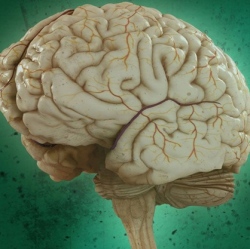
A drug which has already been in use for decades to treat liver disease could be an effective treatment to slow down progression of Parkinson’s, scientists have discovered. The pioneering research supports the fast-tracking of the drug ursodeoxycholic acid (UDCA) for a clinical trial in Parkinson’s patients.
Dr Heather Mortiboys, Parkinson’s UK Senior Research Fellow from the University of Sheffield, explained: "We demonstrated the beneficial effects of UDCA in the tissue of LRRK2 carriers with Parkinson’s disease as well as currently asymptomatic LRRK2 carriers. In both cases, UDCA improved mitochondrial function as demonstrated by the increase in oxygen consumption and cellular energy levels."
Oliver Bandmann, Professor of Movement Disorders Neurology at the University of Sheffield and Honorary Consultant Neurologist at Sheffield Teaching Hospitals NHS Foundation Trust, added: "Whilst we have been looking at Parkinson’s patients who carry the LRRK2 mutation, mitochondrial defects are also present in other inherited and sporadic forms of Parkinson’s, where we do not know the causes yet. Our hope is therefore, that UDCA might be beneficial for other types of Parkinson’s disease and might also show benefits in other neurodegenerative diseases."
The research is also the first to demonstrate beneficial effects of UDCA on dopaminergic neurons, the nerve cells affected in Parkinson’s disease, in a fly model of Parkinson’s disease which carries the same genetic change as some patients with the condition. The study published in the journal Neurology is funded by Parkinson’s UK, the Wellcome Trust and the Norwegian Parkinson Foundation.
A mutation in the LRRK2 gene is the single most common inherited cause of Parkinson’s disease. However, the precise mechanism that leads to Parkinson’s is still unclear.
Defects in mitochondria, and as a consequence reduced energy levels, are a factor in a number of diseases that affect the nervous system including Parkinson’s and Motor Neuron Disease. Nerve cells have a particularly high energy demands, therefore defects in the cell’s energy generators will crucially affect their survival.
Professor Bandmann added: "Following on from the promising results of our in vitro drug screen, we were keen to further investigate and confirm the potential of UDCA in vivo, in a living organism.
